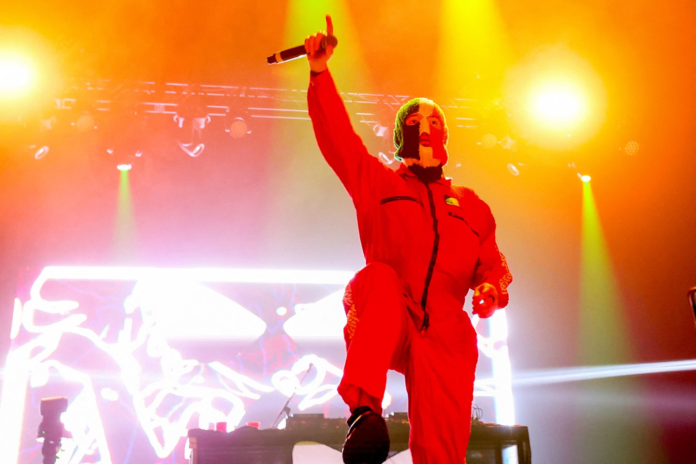Subscribe for full access to The Hollywood Reporter
Subscribe for full access to The Hollywood Reporter
“Every link in the chain failed,” when the festival booked the controversial Irish hip hop group, writes veteran music executive Lee Trink.
By Lee Trink
Coachella stands at the epicenter of global music culture — a world stage where performances reverberate far beyond the desert. Such a platform demands responsibility, one that Paul Tollett and festival promoters AEG/Goldenvoice abandoned when they handed the stage to Kneecap, an Irish band with a public record of cheering on terror groups and promoting hate. In my view, it wasn’t a mistake. It was a choice.
And when the hate speech poured out from the stage, it wasn’t just heard by the thousands in attendance. It was broadcast across social media, third party livestreams, and endless reposts, amplifying their venom to millions. This wasn’t fringe noise in a dive bar heard only by their fans. It was onstage at Coachella’s global megaphone.
What did Paul Tollett expect?
Tollett, the founder of Coachella, has spoken about the festival’s cultural significance, about his responsibility to the audience, about creating a space that is “safe,” and “inclusive.” So where was that responsibility when the bright red flags around Kneecap were raised — again and again — by people in our business who knew what was coming?
Kneecap’s affiliations, politics, and tactics are not secrets. And they are not subtle. Their ideology and provocations have long been part of their brand. Paul and Goldenvoice had ample warning. They didn’t act. They didn’t speak. And worse — they still haven’t.
Let’s be clear: this isn’t about artistic freedom. I’m a First Amendment near absolutist. This is about enabling hate speech. This is about aligning a painstakingly curated and coveted brand — and its audience — with a group whose words and symbols glorify violence and celebrate those who commit it. This is about re-traumatizing Jewish attendees — and others, many of them teenagers. This is about rhetoric that that ripped open the wounds left by the sexual assault and slaughter of young music lovers at the Nova Festival, people not unlike those standing in that desert crowd.
The audience was forced to participate in a display that wasn’t just offensive — it was dangerous.
So, what now?
What does accountability look like when a $600 ticket buys you fear instead of joy, hostility instead of unity? What is the responsibility of an organizer when they provide a platform to groups that violate the very principles music is meant to uplift?
Tollett doesn’t get to hide behind silence. Neither does Goldenvoice, nor AEG. And neither does the music industry. As a Jewish executive who has spent my lifetime in this business. I’ve celebrated its power to uplift, to inspire, to unite. But I watched this moment in stunned disbelief. And I have heard the silence of those responsible.
I think every link in the chain failed. From the booking agents to the stage managers, from the brand partners to the artist liaisons. Each had a chance to say this isn’t right. And no one did. The result? Coachella became a vehicle not for joy, but for intimidation. Not for healing, but for harm. It didn’t have to happen.
We pride ourselves on being cultural leaders. Let’s focus on building bridges not burning them. So now the question is: What will we do about it? Will Tollett address the uproar? Will Goldenvoice apologize — not just with corporate platitudes, but with meaningful action? Visiting the Nova Exhibition as Tollett did doesn’t absolve him of responsibility. If anything, the fact that he had a window into the horrors those festival-goers endured makes his decision to turn a blind eye to this all the more disappointing. Will the industry stand up and draw a line between freedom of expression and platforms of hate?
We’ll see. But know this: the silence of those responsible in our industry is no longer ignorance. It’s complicity. And I for one won’t forget.
Lee Trink is a music industry veteran who was previously the president of Capitol Records and a former manager of major artists. As the co-founder of esports and entertainment brand FaZe Clan, he’s spent his career at the intersection of music, media and youth culture.
Sign up for THR news straight to your inbox every day
Sign up for THR news straight to your inbox every day
Subscribe for full access to The Hollywood Reporter
Send us a tip using our anonymous form.

